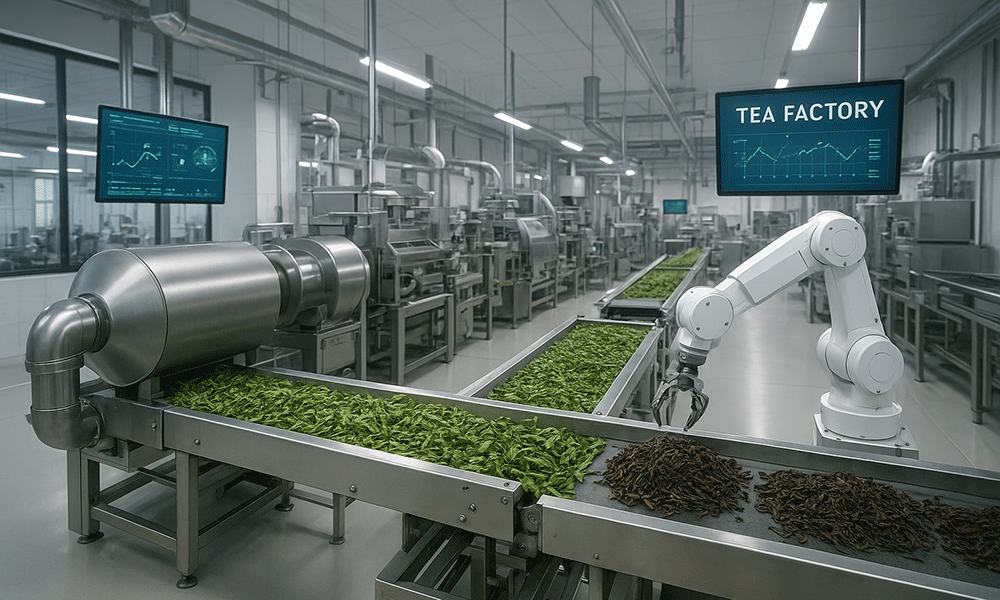The New Era of Tea Machinery "Tradition Meets Innovation"
For more than a century and a half, the art of tea making has been both a ritual and a business that shaped economies across Asia and Africa. The rhythmic hum of rollers, the fragrance of withering leaves, and the precision of oxidation all reflect a delicate balance between heritage and innovation. Today, that balance is being redefined by the rapid evolution of technology and global demand for higher efficiency, sustainability, and product consistency.
Among the names that have stood the test of time, Walkers Sons & Company remains an enduring symbol of excellence in tea machinery engineering. Founded in 1854 by Scottish entrepreneur John Walker, the company revolutionized the tea industry by introducing mechanical innovation at a time when Ceylon was transitioning from coffee to tea cultivation. More than a century later, that same pioneering spirit continues to drive Walkers forward as it embraces the demands of the 21st-century tea economy.
Bridging Heritage and Technology
For tea producers, modernization does not mean abandoning the past. Instead, it means amplifying the wisdom of traditional methods through smarter machinery and advanced systems integration. Walkers’ latest generation of tea rolling tables, for example, preserves the original motion and compression rhythm that define authentic flavor extraction, yet integrates precision motor control and digital performance analytics.
This fusion allows tea factories to achieve consistent output while preserving the subtle taste variations prized by master tasters. It also means lower mechanical stress on leaves, less waste, and longer equipment life, all factors that translate directly to profitability and quality assurance.
A Changing Global Tea Economy
The global tea market is shifting rapidly. According to the International Tea Committee, tea consumption has grown by over 4% annually in Africa and South Asia, while consumers in Europe and North America are showing a growing preference for premium, single-origin teas. These trends demand not only scalability but also the ability to ensure consistent flavor profiles at industrial volumes.
Walkers’ machines are now engineered to meet these demands with automation-ready modules, IoT-based maintenance systems, and energy-efficient components designed for tropical factory conditions. The result is a machinery line that doesn’t merely process tea, it helps shape the brand identity of the factories it serves.
Sustainability and Energy Conscious Engineering
Energy remains one of the most critical cost drivers in tea production. Many factories, especially in Africa and Sri Lanka, are turning to hybrid energy systems combining biomass, solar, and grid power to stabilize operations. Walkers has responded with energy-saving retrofits and variable frequency drive (VFD) solutions that optimize power use in rolling, drying, and sorting stages.
In addition, the company’s focus on low-maintenance design and localized spare part manufacturing reduces the carbon footprint and ensures operational continuity in remote plantations where logistics can be challenging.
Empowering the Next Generation of Tea Makers
The future of tea will be shaped by data and human skill in equal measure. Walkers’ engineering teams are now collaborating with academic and industrial partners to introduce training programs for factory technicians, helping bridge the knowledge gap between conventional mechanical systems and digital process control.
This educational push goes beyond simple machine handling. It introduces factory managers to predictive maintenance analytics, AI-assisted quality monitoring, and data-driven process optimization, all designed to maximize yield without compromising flavor authenticity.
Preserving the Taste of Legacy
In every cup of tea lies a story of soil, leaf, and labor. Machinery may change, but the soul of tea making remains rooted in craftsmanship. Walkers’ continued success lies in honoring that heritage while engineering solutions for the future, a blend of science and sentiment that few brands can replicate.
As global tea producers face increasing competition, environmental constraints, and rising labor costs, Walkers’ philosophy of “Tradition Meets Innovation” serves as a reminder that true progress in the tea industry lies not in replacing history, but in refining it.


